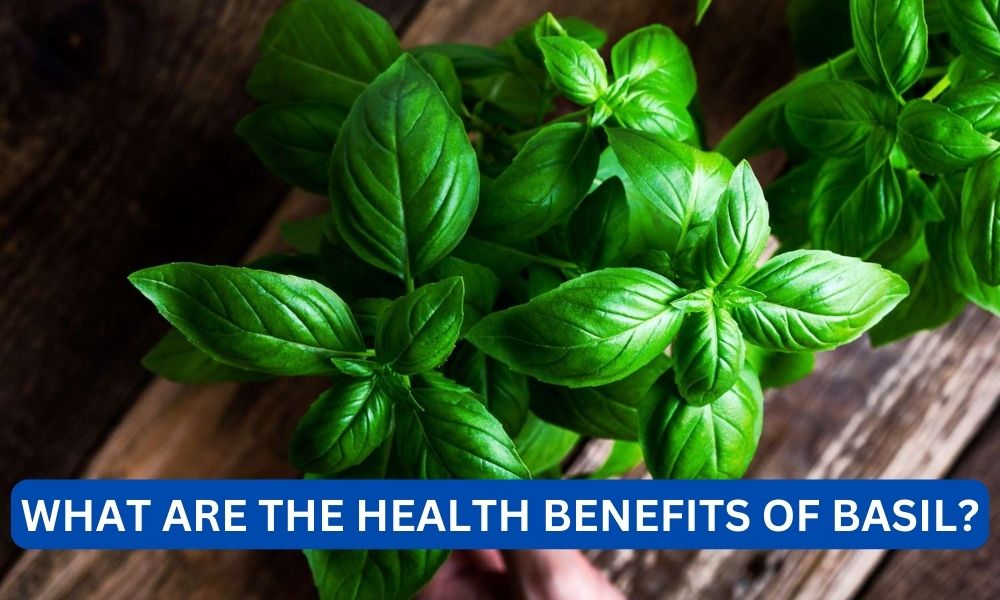Basil, also known as Ocimum basilicum, is a popular herb that is widely used in cooking and traditional medicine. It is native to India and other tropical regions of Asia, but is now cultivated and enjoyed all over the world. This aromatic herb is not only known for its distinct flavor and aroma, but also for its numerous health benefits. In this article, we will explore the various ways in which basil can improve your health and well-being.
Contents
- 1 What is Basil?
- 1.1 1. Rich in Antioxidants
- 1.2 2. Anti-Inflammatory Properties
- 1.3 3. Boosts Immune System
- 1.4 4. Improves Digestive Health
- 1.5 5. Reduces Stress and Anxiety
- 1.6 6. Supports Cardiovascular Health
- 1.7 7. May Have Anti-Cancer Properties
- 1.8 How to Incorporate Basil into Your Diet
- 1.9 Precautions and Side Effects
What is Basil?
Basil is a member of the mint family and is closely related to other herbs such as thyme, oregano, and rosemary. It is an annual plant that grows up to 2 feet tall and has green, oval-shaped leaves. The leaves of the basil plant are the most commonly used part, but its flowers and seeds are also edible and have medicinal properties.
Basil has been used for centuries in traditional medicine to treat a variety of ailments. It is rich in essential oils, vitamins, and minerals, making it a valuable addition to any diet. Let’s take a closer look at the health benefits of basil.
1. Rich in Antioxidants
Basil is packed with powerful antioxidants that help protect the body from damage caused by free radicals. Free radicals are unstable molecules that can cause oxidative stress, leading to chronic diseases such as cancer, heart disease, and Alzheimer’s. Antioxidants neutralize these free radicals and prevent them from causing harm to the body.
Read:What are the benefits of beetsOne study found that basil contains high levels of phenolic compounds, which have strong antioxidant properties. These compounds help protect the body against oxidative stress and reduce the risk of chronic diseases.
2. Anti-Inflammatory Properties
Inflammation is the body’s natural response to injury or infection. However, chronic inflammation can lead to various health problems, including heart disease, diabetes, and arthritis. Basil contains essential oils, such as eugenol, linalool, and citronellol, which have anti-inflammatory properties.
A study published in the Journal of Medicinal Food found that basil extract reduced inflammation in rats with arthritis. Another study showed that basil oil reduced inflammation in mice with colitis, a type of inflammatory bowel disease.
3. Boosts Immune System
Basil is rich in vitamins and minerals that are essential for a healthy immune system. It contains high levels of vitamin A, vitamin C, and zinc, which are known to boost the immune system and protect the body against infections and diseases.
One study found that basil extract increased the production of immune cells in mice, suggesting that it may have immune-boosting properties. Another study showed that basil oil has antimicrobial properties, making it effective against various bacteria and fungi that can cause infections.
Read:What are the benefits of l lysine?4. Improves Digestive Health
Basil has been used in traditional medicine to treat digestive issues such as bloating, indigestion, and constipation. It contains compounds that help stimulate the production of digestive enzymes, which aid in the breakdown of food and improve digestion.
One study found that basil extract reduced the severity of stomach ulcers in rats. Another study showed that basil oil has anti-spasmodic properties, which can help relieve stomach cramps and bloating.
5. Reduces Stress and Anxiety
Basil has been used in Ayurvedic medicine to promote relaxation and reduce stress and anxiety. It contains compounds that have a calming effect on the body and can help improve mood and reduce symptoms of anxiety and depression.
A study published in the Journal of Ayurveda and Integrative Medicine found that basil extract reduced anxiety and stress levels in rats. Another study showed that inhaling basil oil can help reduce symptoms of anxiety and improve mood in humans.
6. Supports Cardiovascular Health
Basil contains compounds that can help improve heart health and reduce the risk of cardiovascular diseases. It is rich in vitamin K, which is essential for blood clotting and maintaining healthy bones. It also contains magnesium, which helps regulate blood pressure and prevent heart disease.
Read:What benefits do mangoes have?One study found that basil extract reduced cholesterol levels in rats with high cholesterol. Another study showed that basil oil has anti-hypertensive properties, which can help lower blood pressure and reduce the risk of heart disease.
7. May Have Anti-Cancer Properties
Some studies have shown that basil may have anti-cancer properties, although more research is needed to confirm this. Basil contains compounds that have been found to inhibit the growth of cancer cells and prevent the formation of tumors.
A study published in the Journal of Cancer Prevention found that basil extract reduced the growth of breast cancer cells in mice. Another study showed that basil oil has anti-tumor effects on human liver cancer cells.
How to Incorporate Basil into Your Diet
Basil is a versatile herb that can be used in a variety of dishes. Here are some ways to incorporate basil into your diet:
- Add fresh basil leaves to salads, soups, and sandwiches for a burst of flavor.
- Make a homemade pesto sauce using basil, garlic, pine nuts, and olive oil.
- Use dried basil in marinades, rubs, and sauces for meat and fish.
- Infuse water with basil leaves for a refreshing and healthy drink.
- Add chopped basil to your favorite pasta dishes for a delicious twist.
Precautions and Side Effects
While basil is generally safe for consumption, there are a few precautions to keep in mind:
- Basil may interact with certain medications, so it is best to consult with your doctor before consuming large amounts of basil if you are taking any medication.
- Some people may be allergic to basil, so it is important to watch out for any allergic reactions when consuming it for the first time.
- Basil contains a compound called estragole, which has been found to be carcinogenic in high doses. However, the amount of estragole in basil is considered safe for consumption.
Conclusion:
Basil is not just a flavorful herb, but also a powerhouse of nutrients and compounds that can improve your health in various ways. From boosting your immune system to reducing stress and anxiety, this herb has numerous health benefits that make it a valuable addition to any diet. So, next time you’re cooking, don’t forget to add a sprinkle of basil for both flavor and health benefits.
Remember to always consult with your doctor before making any significant changes to your diet, especially if you have any underlying health conditions. With its many health benefits and delicious taste, basil is definitely a herb worth incorporating into your daily routine.









